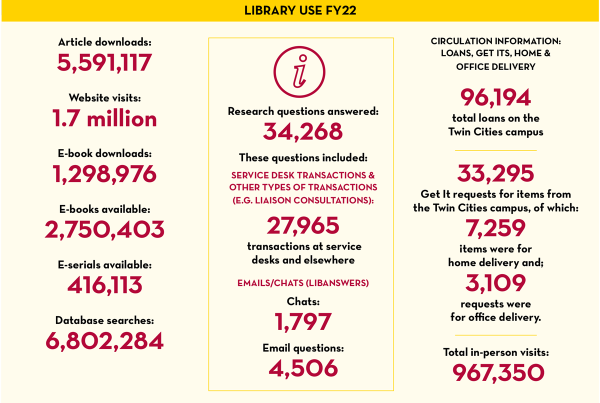This post is one in a series about the Libraries open access (OA) principles, as outlined in Towards Open Access at the University of Minnesota (z.umn.edu/TowardsOA). The Senate Library Committee (SLC) issued a statement of support in November 2021 and a number of Senate Committees have endorsed the SLC’s statement.
The University of Minnesota Libraries is working towards an open, equitable, transparent, and sustainable scholarly publishing system. We support a true transformation of the scholarly publishing system that
- Enables academy-owned publishing infrastructure so that scholars and academic organizations are in control of production. and
- Requires cooperative action and distributes costs equitably.
“Subscribe to Open” and other “diamond” OA models, in which everyone can read scholarly articles for free and all authors are able to publish their work at no cost to themselves, will help achieve these goals. The Libraries has been investmenting in this area to align with increasing support for these approaches from across the world. This growing support can be seen in investments from Science Europe and statements from deans at some of the most prestigious universities in the United States and researchers in the United Kingdom. The following are just a few examples.
In Subscribe to Open, current subscribers agree to continue to subscribe, with the understanding that if a certain threshold of participation from subscribers is reached, all newly published content will be made immediately open access. This model requires cooperative action — if too many existing subscribers decide to not participate because they think the journal will become OA anyway, without their commitment, they risk losing access if the threshold isn’t met. Publishers we support in their implementation of this model include, but are not limited to, Annual Reviews, Berghahn Books, EDP Sciences, the European Mathematical Society, the International Water Association, and Pluto Journals. See this list for more journals following the S2O model.
There are other cooperative funding models where an organization coordinates contributions to convert journals to diamond OA. A long standing example is the Sponsoring Consortium for Open Access Publishing in Particle Physics (SCOAP3), which converts closed access journals in the area of high-energy physics to open access. It is an international collaboration organized by CERN (the European Organisation for Nuclear Research) wherein countries contribute funding based on how much research their researchers produce—but all authors, regardless of their institutional participation or geographic location can publish open access at no cost. The Libraries also support individual diamond OA journals, such as Algebraic Combinatorics, History of Media Studies, Demography, and the Journal of City Climate Policy and Economy.
It has been more difficult to find successful open access monograph funding models to invest in, largely because the book processing charges (the analog to article processing charges, APCs) are often much higher than authors or their institutions can afford. The Libraries have long supported Open Book Publishers, a diamond monograph model. Additionally, a number of new programs for open access monographs have been launched in the last couple of years. MIT Direct to Open, University of Michigan Fund to Mission, and ITHAKA/JSTOR Path to Open are three that the Libraries currently support. Similar to subscribe-to-open, participating institutions buy access to monographs, but instead of buying access for only their researchers, they contribute to the funding the presses need to make the monograph open for all. In the case of Path to Open, presses are allowed to delay open access for up to three years.
Libraries Publishing Services publishes journals, monographs, syllabi, and textbooks using a diamond open access model. The Libraries supports these publications by providing digital publishing platforms, peer review software, manuscript management tools, and supports the needs of editorial boards across journals from multiple disciplines. This is just one example of academy-owned publishing.
Open access publishing models that rely on author fees prevent researchers from sharing their work with the audiences who need it. The inequity of APC-based models, which prevent the majority of the world’s researchers from sharing the knowledge they create, has been a topic of conversation across global audiences. The University of Minnesota Libraries has been supporting diamond open access models for years and will continue to grow our support as new opportunities arise.




